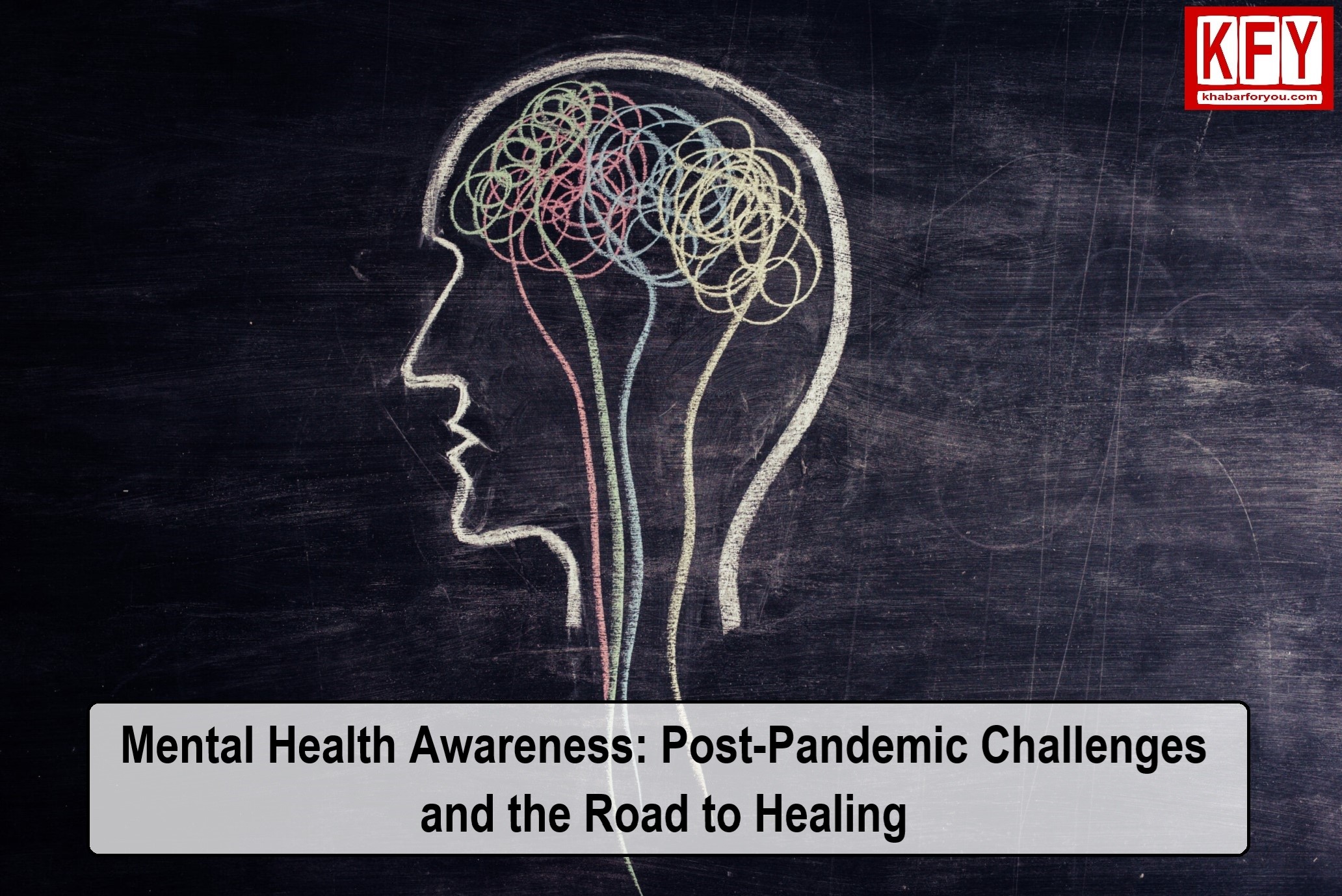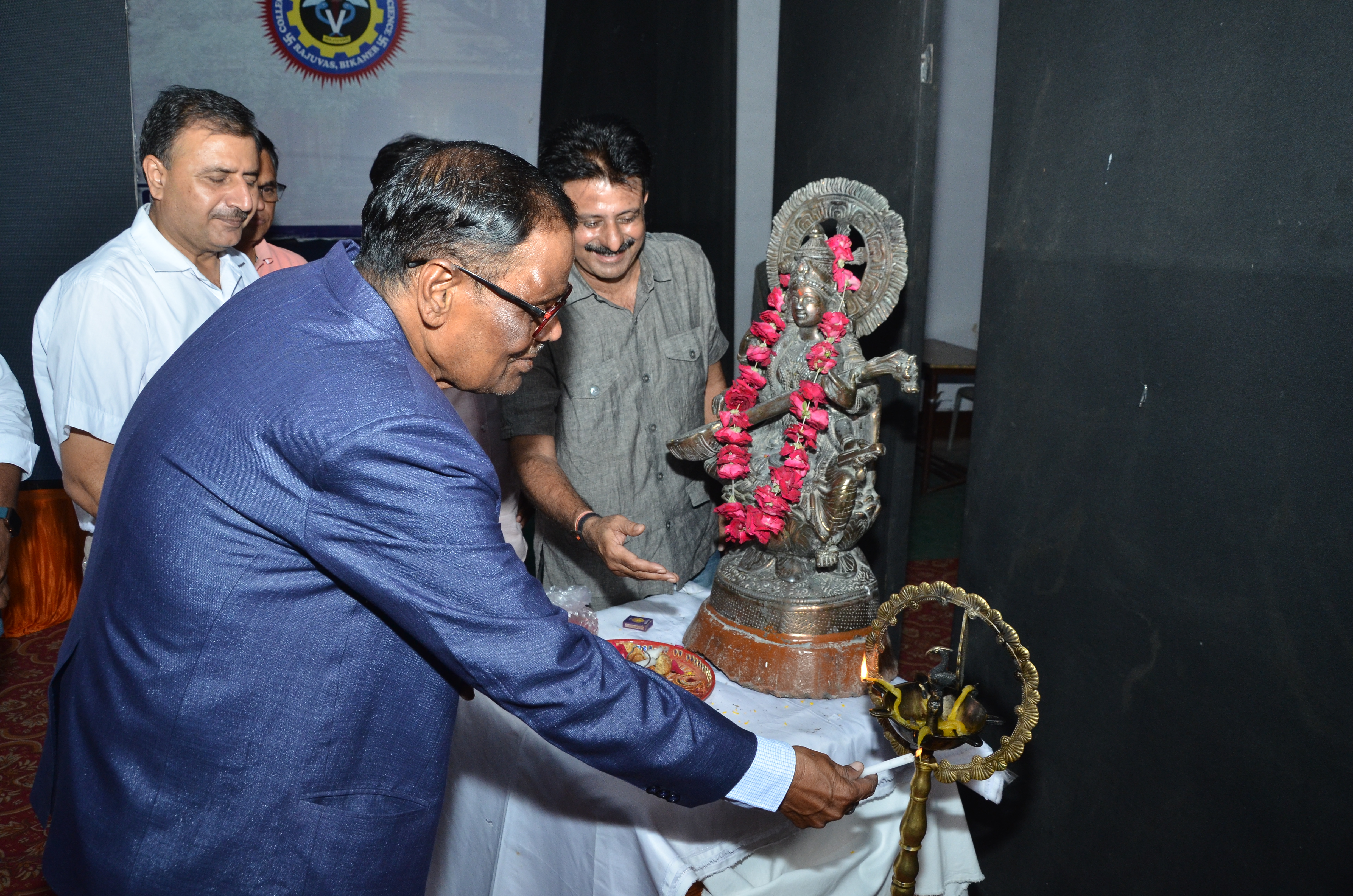Mental Health Awareness: Post-Pandemic Challenges and the Road to Healing #MentalHealthMatters #PostPandemicHealing #AwarenessForAll #ResilienceInRecovery #HealingJourney #AreYouOkay

- DIVYA MOHAN MEHRA
- 28 May, 2025
- 97632

Email:-DMM@khabarforyou.com
Instagram:-@thedivyamehra

When the world was battling the physical threat of COVID-19, an invisible crisis was unfolding in parallel: the deep psychological toll of the pandemic. As we begin to move beyond the peak of the crisis, the emotional aftermath still lingers—more silent, yet equally urgent. The post-pandemic era is witnessing a mental health reckoning that none of us can afford to ignore.
A Crisis Beneath the Surface
During the pandemic, millions
experienced loss—of loved ones, jobs, routine, and certainty. Lockdowns
separated families, left children without schools, and turned homes into
offices overnight. According to a 2022 report by the World Health Organization (WHO),
the global prevalence of anxiety and depression increased by a staggering 25%
during the first year of the pandemic.
Women at the Epicenter
The crisis disproportionately
affected women. With schools closed, household workloads increased, and
domestic violence cases surged. Many women were forced to drop out of the
workforce altogether. For working mothers, the blurring of personal and professional
boundaries added intense pressure, often without support.
Yet, most didn’t speak up—conditioned by society to “adjust,” “cope,” and “not complain.”
Why Mental Health Still Struggles for Attention
Despite the surge in need, mental
health remains stigmatized. Terms like "therapy,"
"depression," or even "self-care" are misunderstood in many
parts of the country. People often hesitate to seek help, fearing judgment or
being labeled as “weak.”
Infrastructure, too, is limited. India has less than 1 psychiatrist per 100,000 people, according to WHO data—far below the recommended ratio. Rural and semi-urban areas are especially underserved.
How Can We Recover?
Recovery from a mental health
crisis is not linear—but it is possible, and increasingly, there are steps
individuals and communities can take:
Acknowledging that you're
struggling is the first step. Mental health is health. Just like physical
ailments, emotional pain deserves care and compassion—not shame.
Conversations are powerful. When
public figures and media normalize therapy, emotions, and healing, it empowers
others to do the same. Schools, workplaces, and families need to create safe
spaces where mental health isn’t a taboo.
Therapy and counseling are no
longer limited to metros or elite circles. Affordable options like iCall,
Fortis’ Mental Health Helpline, and online platforms like YourDOST or BetterLYF
are available across India. Many offer support in regional languages.
The isolation of the pandemic
taught us how vital community is. Reconnecting with friends, family,
neighbors—even in small ways—can dramatically boost emotional well-being.
Exercise, sleep, journaling,
digital detox, mindfulness—these aren’t luxuries. They’re essentials. Regular
routines, hobbies, and time for oneself are building blocks for emotional
resilience.
The Way Forward
India is slowly waking up to the
importance of mental wellness. Corporate wellness programs, school counselors,
mental health influencers, and startups in the mental health space are making
conversations more accessible.
But awareness must go hand in hand with action. Governments must invest in mental health infrastructure. Workplaces must prioritize employee well-being. And most importantly, we as a society must choose empathy over stigma.
Because behind every silent smile could be a storm—and sometimes, all it takes to save a life is the courage to ask: “Are you okay?”
Business, Sports, Lifestyle ,Politics ,Entertainment ,Technology ,National ,World ,Travel ,Editorial and Article में सबसे बड़ी समाचार कहानियों के शीर्ष पर बने रहने के लिए, हमारे subscriber-to-our-newsletter khabarforyou.com पर बॉटम लाइन पर साइन अप करें। |
| यदि आपके या आपके किसी जानने वाले के पास प्रकाशित करने के लिए कोई समाचार है, तो इस हेल्पलाइन पर कॉल करें या व्हाट्सअप करें: 8502024040 |
#KFY #KFYNEWS #KHABARFORYOU #WORLDNEWS
नवीनतम PODCAST सुनें, केवल The FM Yours पर
Click for more trending Khabar

Leave a Reply
Your email address will not be published. Required fields are marked *
Search
Category






